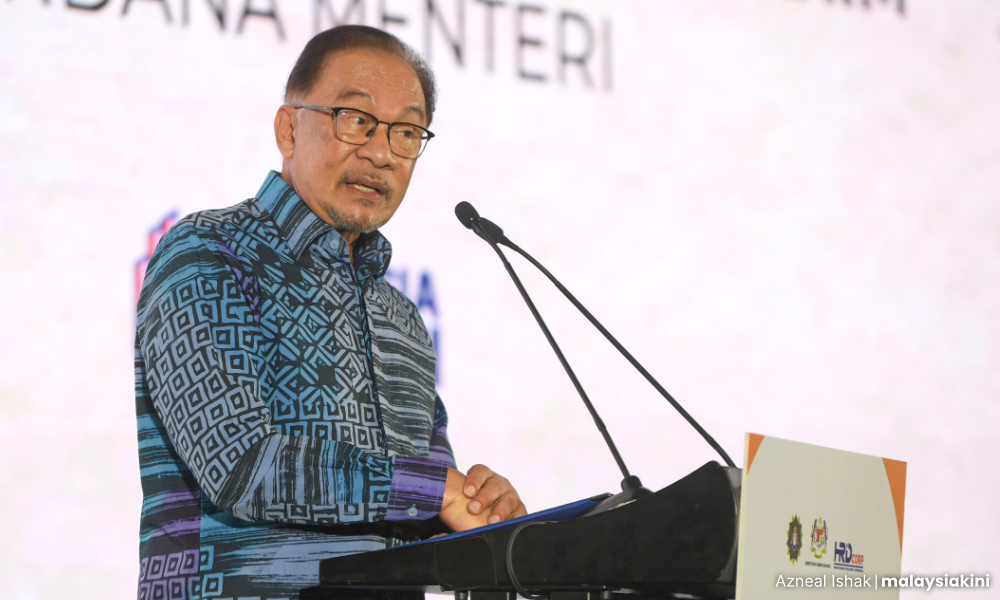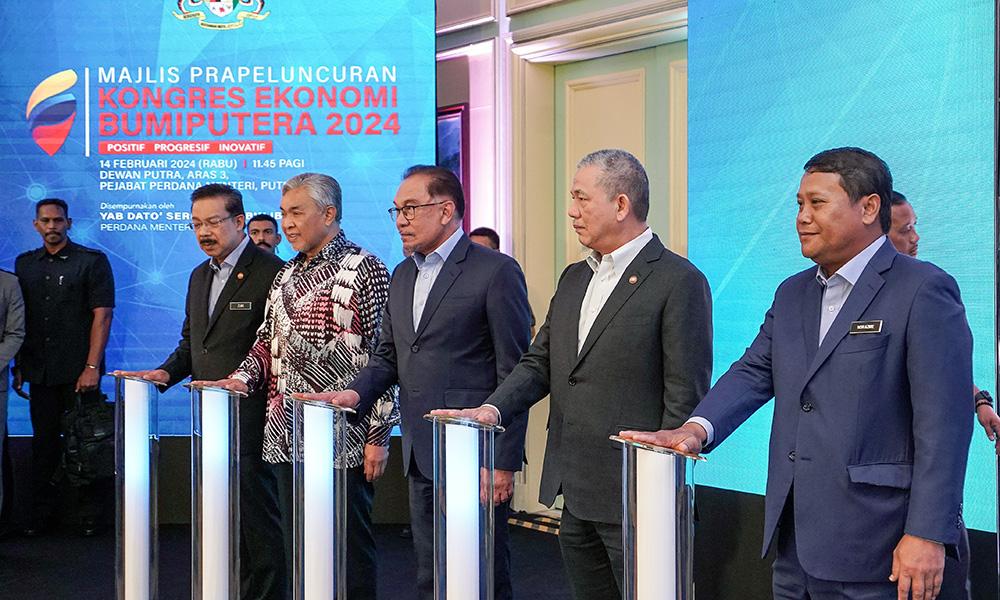Uncovering corruption. Exposing social injustice. Holding public officials to account. Making a difference in the public discourse.
Early career journalists usually start with these ideals - up to a point when frustrations creep in. Some leave the profession. Others persist against the odds. That was my journalistic experience decades ago.
That reality still holds sway with the government’s imposition of a media accreditation system and code of media ethics, revised from the Malaysian Press Institute version written in 1989.
Communications Minister Fahmi Fadzil’s media incursion contradicts his remarks last November that he would work hard to defend and uphold media rights and freedom.
Fahmi’s re-invention of media ethics (which essentially reflects the National Union of Journalists Code of Ethics) turns the reformasi agenda on its head with Bersih re-emerging to hold the government to their campaign pledges in 2022.
Here’s what Prime Minister Anwar Ibrahim said in an interview with Al Jazeera in June 2023: “When it comes to governance, I think it is my duty to undertake and effect change because the country is somewhat destroyed. Unless there is a clear political commitment and resolve to change, I do not believe Malaysia will survive.”

That’s the PM alluding to the reality that Malaysia could become a failed state if it does not transition from its race-based policies to affirmative action based on needs.
Of particular relevance here is Pasir Gudang MP Hassan Abdul Karim’s call on the Bumiputera Economic Congress “to review if the bumiputera privileges under Article 153 of the Federal Constitution actually benefited the group”, even if the prime minister says it is unnecessary, which contradicts his professed views on Al Jazeera last June.
Need for change
Why do politicians make promises they know they can’t keep? Because voters made them do it? Populist politicians say what their constituents want to hear during the heat of election campaigns.
Online news portals reinforce these public expectations. Today’s backpedalling shows the compromises a “unity government” had to make to maintain relative stability, to sustain a coalition of the unwilling.
How then can journalists follow up on the prime minister’s allusion to the need for change given that race and religion are so central to Malaysian politics - to the extent of racialising an economic congress or heritage foods?
Setting aside the pushbacks against Fahmi’s revised code of media ethics and media council bill, or the platitudes bandied about at the Bumiputera Economic Congress, readers’ confidence in the media will ultimately depend on the journalists’ capacity to report accurately and fairly in the public interest.

Are journalists critically aware of the eight principles of the NUJ Code of Ethics? Do they hold the code close to heart in their work? I doubt it. But many would certainly defer to the imperatives of accuracy, fairness, and responsibility in their reporting.
While a code of ethics does elevate the journalism profession and gives journalists a mark of public respectability, it does not necessarily lead to consequential in-depth journalism - one that goes beyond “he said, she said”.
Journalists’ obligation
Best practices can only eventuate when journalists are critically conscious of their obligation to sieve truths from falsehoods, to research the background of issues and clarify the context of what was said.
For instance, when errant politicians stoke the “untuk agama, bangsa dan negara” fire, cite the Census 2020 data that shows Malays account for about 69 percent of the population. How are the silent minority a threat to the bumiputera privileges?
Hence the need for journalists to dig deeper into the datasets and provide context beyond the facts. A single story that is factually accurate can nonetheless be misleading when the processes that led to the contentious issues are ignored.
For instance, on-site reporting of the Bumiputera Economic Congress has so far missed the plights of the ‘underclass’ – the bottom 40 percent of the Malay (and non-Malay) population.
Official narratives do not always tell the whole story. They are often tainted by power play and self-interest. Journalists must notice the cracks. In the process to multiple check that their stories are accurate in both the facts and context, and fair to the sources cited in the stories.

Socially conscious journalists, regardless of race, ought to defer to the people’s agenda and re-frame their stories to focus on diversity and inclusivity.
Former Sungei Siput MP Dr Michael Jeyakumar Devaraj, economic historian Lim Teck Ghee, and columnist Adzhar Ibrahim have clearly outlined the realities of inequitable distribution of benefits and opportunities among the Malay populace - and Malaysians in general.
Change does feel unattainable when our politics are steeped in race and religion. A starting point is where journalists who hold on to their ideals as the people’s watchdog - hence their readers - consciously attempt to cross racial boundaries and advocate for the kind of society we want to live in.
To reiterate the PM’s words: “Unless there is a clear political commitment and resolve to change, I do not believe Malaysia will survive.” - Mkini
ERIC LOO is a former journalist and educator in Australia and a journalism trainer in parts of Asia.
The views expressed here are those of the author/contributor and do not necessarily represent the views of MMKtT



No comments:
Post a Comment
Note: Only a member of this blog may post a comment.